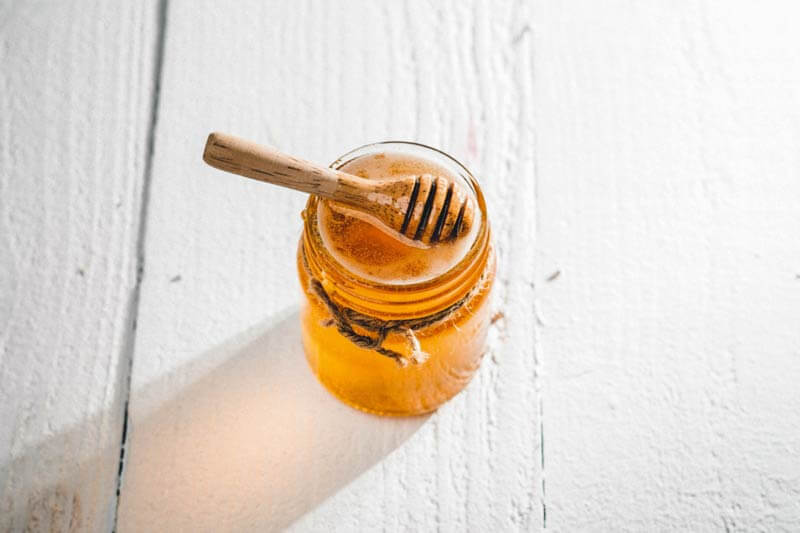Those with bee sting allergies commonly wonder if they could also be allergic to honey. And if you know that you’re allergic to honey, do you also have a stinging insect allergy? The answer: maybe.
Bee-related Allergies: Bee Stings, Pollen, and Honey
For something so small, bees can cause large allergic reactions. There are a few ways bees find themselves at the center of allergenic conversations. Below, you’ll find three that we’ll later relate to honey consumption: bee sting allergies, pollen allergies, and honey allergies.
Bee Sting Allergy
Specifically, “bee sting allergy” means a person has an allergic reaction to honey bee venom. However, people can be allergic to the poison of all different kinds of stinging insects. Someone can be more sensitive to the venom of yellow jackets than to honey bees. Or, they can be equally allergic to all types of stinging insect venom.
Contact with vespid venom can be deadly. Each year 220,000 emergency room visits occur in the US for bee-sting-related anaphylaxis.2
Pollen Allergy
While pollen isn’t a product of honey bees, the two are deeply intertwined. Honey bees are avid pollinators. So, people who suffer from severe pollen allergies may come into contact with allergens through bee-related products.
Honey Allergy
A honey allergy is a type of food allergy and is extremely rare. It is estimated to affect less than 0.001% of the general population.
Experiencing an Allergic Reaction After Eating Honey
Honey, predominantly unprocessed honey, can contain pollen and bee components. While you can be allergic to the honey itself, it is incredibly rare. So, it is best to consider these other possibilities.
For instance, a study found that when bee-venom allergic patients were exposed to honey extracts, 7 of 10 people showed IgE antibodies binding to bee-specific components. IgE antibodies are responsible for systemic allergic reactions. Extracts of honey bee heads and bee venom sacs in the honey were to blame.
A second study gathered 22 patients who experienced an allergic reaction after eating honey. Through testing, they discovered that 75% of the group was sensitive to dandelion honey and 13 of 22 to Compositae (daisy) pollen.
So, an allergic reaction to honey can be from the honey itself. But it also can be from airborne pollen or cross-reactivity with bee venom components.

ALLERGY TESTING
The best way to find out what is causing your allergic reaction is to talk to a local medical professional. In a controlled setting, an allergist can test and determine the extent of your allergies. Then, you can make an informed decision on how to move forward.
Allergies are serious, so don’t wait! Your next reaction could be worse than your last.


Find a Local Allergist
If you think you have a bee sting allergy, don’t wait for an emergency. Instead, talk to an allergist about testing and venom immunotherapy.






